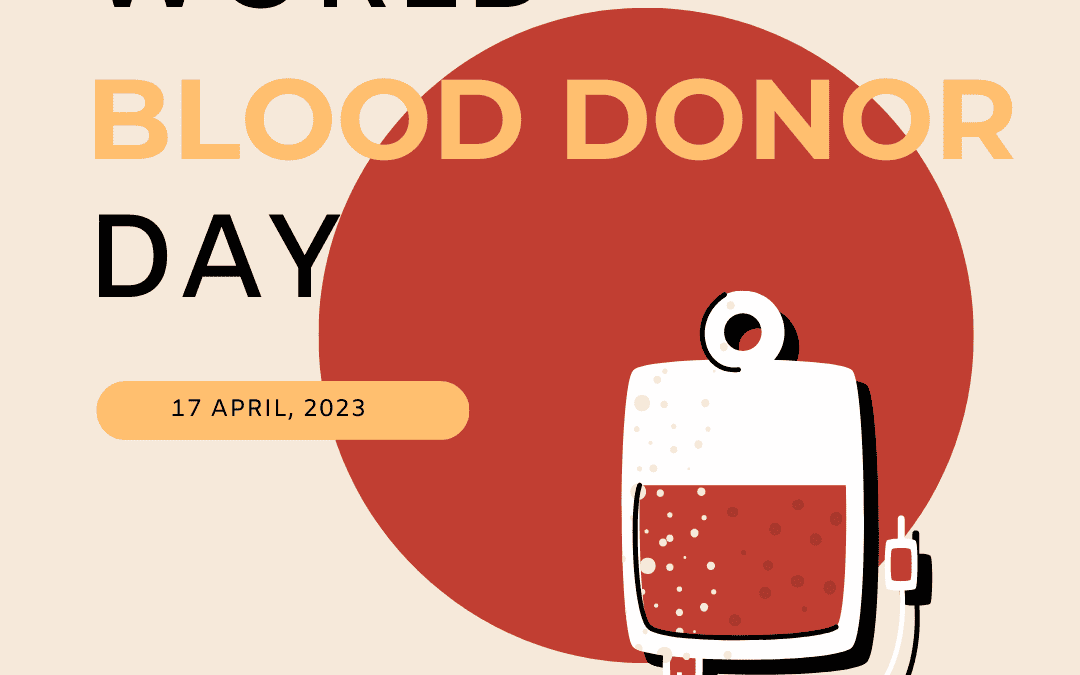Introduction: World Blood Donor Day, celebrated annually on June 14th, serves as a significant reminder of the crucial role played by voluntary blood donors in saving lives. This global observance aims to raise awareness about the importance of safe blood donation and recognize the selfless individuals who contribute to this noble cause. By promoting voluntary blood donation, World Blood Donor Day has a profound impact on healthcare systems worldwide.
The Importance of Safe Blood Donation: Safe blood and blood products are vital for various medical interventions, including surgeries, emergencies, and treatments for individuals with life-threatening conditions. Regular blood donations are crucial to ensure an adequate and sustainable blood supply. By donating blood, individuals make a direct impact on health and well-being of patients in need.
Recognition and Appreciation of Blood Donors: World Blood Donor Day provides an opportunity to express gratitude and appreciation to voluntary blood donors around the world. These individuals, motivated solely by compassion and a desire to help others, play a critical role in saving lives. Their selfless acts deserve recognition and acknowledgment, as they exemplify the highest form of humanitarianism.
Promoting Voluntary Blood Donation: Voluntary blood donation forms the base for a safe and sustainable blood supply. World Blood Donor Day encourages individuals to become regular blood donors and motivates others to participate in this life-saving act. By highlighting the importance of voluntary, unpaid donations, this observance helps dispel misconceptions and encourages a culture of giving back to society.
Public Awareness and Education: World Blood Donor Day serves as a platform to educate the public about the significance of blood donation. It aims to dispel fears and misconceptions surrounding the process and emphasizes the safety and importance of donating blood. Through public awareness campaigns, educational initiatives, and community engagement, this day fosters a better understanding of blood donation and its impact on saving lives.
International Collaboration: World Blood Donor Day fosters collaboration among governments, health organizations, national blood services, and civil society on a global scale. It serves as a catalyst for sharing knowledge, experiences, and best practices in blood donation and transfusion. By uniting various stakeholders, this observance facilitates international cooperation in addressing challenges and improving blood transfusion services worldwide.
Mobilizing Resources: World Blood Donor Day highlights the need for governments and health systems to allocate resources to establish and maintain sustainable blood transfusion services. It emphasizes the importance of infrastructure, trained personnel, and adequate supplies to meet the demand for safe blood. By advocating for resource mobilization, this day contributes to strengthening healthcare systems and ensuring the availability of safe blood when and where it is needed.
Conclusion: World Blood Donor Day stands as a powerful reminder of the lifesaving impact of voluntary blood donation. Through awareness, recognition, and education, this global observance inspires individuals to become regular blood donors, fostering a culture of compassion and empathy. By joining hands and working together, we can ensure a sustainable and safe blood supply for those in need. Let us celebrate World Blood Donor Day and honor the remarkable contributions of voluntary blood donors who selflessly give the gift of life.






